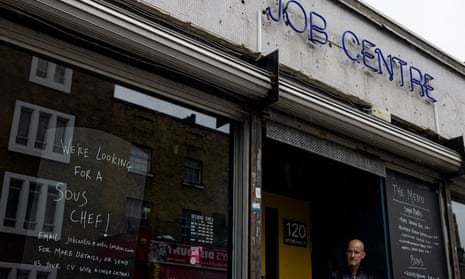Employers are offering signing-on fees of up to £10,000 to tempt “gold dust” applicants as more than 1.1m jobs in the UK remain unfilled, with the pingdemic worsening a shortage of workers caused by Brexit and a lack of skills.
Care home operator HC One is offering a £10,000 “welcome bonus” on two jobs for registered night nurses, both in Scotland, as private health care providers battle with a shortage of workers partly caused by EU citizens returning home.
HC One’s offer is particularly high. But, elsewhere, mental health group Elysium Healthcare is offering a welcome bonus of £5,000 for registered nurses, while the Priory Group is offering £5,000 for mental health nurses.
The hefty fees emerged after a survey by job search engine Adzuna found almost 5,000 vacancies across the UK currently offering signing-on bonuses for in-demand roles such as care workers, chefs and nursery staff.
It also found that supermarket group Asda had joined Tesco in offering a £1,000 signing-on fee for HGV drivers amid a shortage in qualified workers that prompted dairy group Arla to offer a £2,000 bonus.
The trend in upfront payments has emerged as the battle for workers hots up. According to Adzuna, there were 1,116,454 advertised job vacancies between 19 and 25 July, with logistics and hospitality among the worst-hit sectors.
The figures include 84,845 vacancies in logistics and warehousing – more than three-and-a-half times (263%) those advertised a year ago.
Retail vacancies have risen 14% to 31,000 in the past month, as the high street gets back into gear, while more than 70,000 jobs were advertised in hospitality for the ninth consecutive week. Chefs were among the most in-demand, with just over 42,000 vacancies.
Some firms have passed on higher wage costs, along with higher import prices, to customers, but most have so far absorbed most of the extra cost burden, squeezing profits margins and limiting the increase in inflation to 2.5%, according to the most recent figures for June.
The Bank of England’s monetary policy committee is expected to take into account labour shortages and a revised forecast for inflation – which it is likely to say will peak this year at 3.5%, up from a previous prediction of 3% – when it meets on Thursday to determine borrowing costs.
The committee is split about the pace of the recovery; some members are concerned that the robust return of economic activity needs to be calmed down by a slowing of the central bank’s £875bn quantitative easing stimulus programme.
But the constraints on growth from labour shortages and a rise in raw material costs that will be viewed as temporary is likely to persuade a majority on the committee that rates should remain at a historic low of 0.1% and the QE programme should remain in place.
Adzuna cofounder Andrew Hunter said: “The pingdemic has hit just as businesses start to get to grips with filling open roles.
“The struggle to hire is one of the biggest challenges facing businesses, with hundreds of thousands of workers still on furlough, hesitation among others to go back to work, fewer overseas workers available to fill positions, and a lack of skilled staff in some sectors.
“The pingdemic has compounded these issues, as many jobseekers are forced to self-isolate over attending interviews or starting work.”
He said the shortages had arisen at a critical time for sectors such as wedding venues, smaller independent shops and restaurants, which were relying on the summer period to make up for lost income needed to keep their businesses afloat.
The Co-operative Bank said it was having to recruit extra workers to bolster its support teams after more of its staff were forced to self-isolate, causing hold-ups with customer queries.
Aftercomplaints from customers, the bank said: “We’re sorry our customers are waiting longer than normal to get through to us on the phone.
“In recent weeks, we have seen an increase in instances where colleagues are being contacted to self-isolate which has at times impacted on our staffing levels.
“We have therefore commenced recruitment to increase the size of our customer support teams.”
